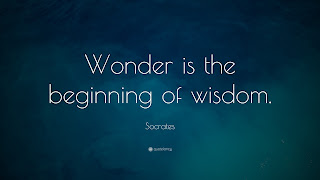How Ayn Rand viewed the necessity of freedom
The interesting thing about Rand is that she's practically a refugee that fled to the United States from the Soviet dictatorship. This means that if you want an example of somebody who's seen the horrors of communism, Marxist thought and postmodernist thought, there you have it, and having seen such a flawed reality of the communist ideology, she practically had no choice but to resent it, and thus was a pretty stern individualist.
Her Virtue of Selfishness is a collection of essays which explained her philosophy, Objectivism. This philosophy consists of reality's existence in spite of consciousness. In other words, she takes the age-old question of whether a tree really falls in the woods if there's no one around to see or hear it, and she pretty much takes a dump over it because regardless of anybody being there, the tree will fall because it's happening.
Objectivism also goes into morality, explicitly stating that man's moral purpose is to pursue his own happiness and the only socioeconomic system that will allow this is laissez-faire capitalism. This is why a lot of libertarians identify with Ayn Rand, they want a system as close to a truly free market as possible with minimal government intervention, in order to not have their individual rights threatened by any institution. This means that you can produce what you want, sell it to whomever you want, with whatever standards you have. As a customer, this also allows you the freedom of choice, and this seems to be threatened on both sides because the freedom of choice implies the freedom of discrimination, of having standards. The same way you can't just up and open a bar without getting a license to sell liquor in developed countries, you aren't really free to choose your religion in places like Egypt, where you can legally convert to Islam but not to any other religion.
Then, we have to wonder, what does Rand mean when she talks about selfishness? It's usually a derogatory term, after all, and one who praises the selfish is usually pretty egotistical himself. Thus, the term must be understood as "concern for your own interests", and when this is held back from the individual, it is when evil is manifested. If you're wondering whether this means one is not capable of loving another, then you have to realize it's not like that either. Ayn Rand was married to a designer who tried becoming an artist, who was living off royalties from his past works, and when asked whether she would need to help him stay on his feet were money to stop flowing into his pockets, she replied that not really, because she'd be doing it out of her love for him and it would give her immense pleasure that would be self-gratifying for herself.
To take an example from her fiction, in Atlas Shrugged the producers are burdened with the weight of the world on their shoulders, not only with taxes and regulations but the demand that all must be shared, after all, it is man that holds his brother up. Her heroes reject this because they refuse to live for another, only for themselves, and so they leave everything behind and create their own society in which everybody is equal and free, and nobody is obligated to live for another. It's a very utopic vision, for sure, but there is an interesting lesson to be learned about society's entitlement and resentment towards those who actively look out for their own interests. This is not to say that they wouldn't be fair or even charitable. Some of these men actively improved humanity with their inventions, innovations, discoveries, what have you, and there's even a banker who refused to loan money to people who wouldn't be capable of paying it back, which, if I may remind you, was a big factor of the 2008 crisis in the first place.
What can we learn from this?
Objectivism is pretty simple to apply if you can understand that altruism is definitely a virtue you can have, but you can never place your love of another over the love of self, that is what cripples individuals and in the long run cripples societies. You may ask how it is that Bill Gates can dedicate most of his wealth to charity, then, and to that the answer is that he's pretty much covered, as well as his family, and they have more than enough money to last themselves a few generations, even with all they have donated.
It's a pretty Aristotelic way to view the world, for sure, centering yourself in what's reality instead of the interpretation of what it should be, and acting according to that, and if you want to lead an existence that is both moral and practical, you wouldn't regret checking her philosophy out. I'd suggest reading Anthem, though, instead of Atlas or The Fountainhead. It's a pretty quick read and has most of her ideas.
You can read Anthem here:






























